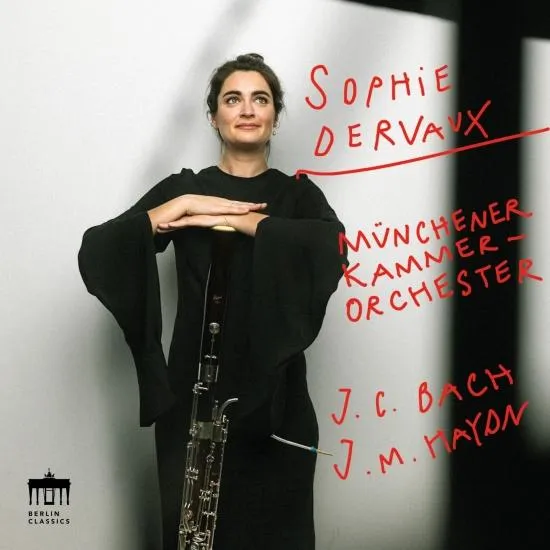
Unrecognised Relatives JC Bach: Bassoon Concertos; JM Haydn: Symphony No. 14 Munich Chamber Orchestra/Sophie Dervaux (bassoon) Berlin Classics 0302347BC 59:33 mins
The purpose of a liner note is to help listeners get their bearings on what they are going to hear. So the booklet for this recording is unusual, in that it consists simply of two snaps of the ensemble, and 18 of their bassoon soloist and conductor. We get Sophie Dervaux posing in flowing silks, leather trouser suits, veils, gauzy nothings, with or without her instrument, but always wearing the same ‘look at me’ grin. Apart from the identification of the production team (but not the musicians) and the works performed, there is not one single word about either the composers or their music. This may feed Dervaux’s narcissism, but it doesn’t do much for the rest of us.
A useful liner note might have explained that the concertos here – one by Johann Michael Haydn (born in 1737), and two by Johann Christian Bach (born in 1735) – form part of the neglected 18th-century bassoon literature which Dervaux wants to popularise. The title of the recording (not vouchsafed in the booklet) is Unrecognised Relatives, meaning that they are, respectively, the younger brother and the youngest son of the Joseph Haydn and JS Bach we all know. And since they’re shadowy figures, it might have been nice to learn a bit about them. But no, all we have is the music.
Which is first rate. It’s no surprise that the mercurial Symphony by JM Haydn should sound very like a work by his brother, or that the slow movements of JC Bach’s concertos should echo the tone of his father; these works are all quintessentially of their time and place. And there is much to enjoy in Dervaux’s playing: her cadenzas are short but inventive, her rapid ornamentations technically perfect, and her cantabile sound has a generous warmth. Now she has blazed a trail, these works deserve to enter the mainstream repertoire.
Michael Church